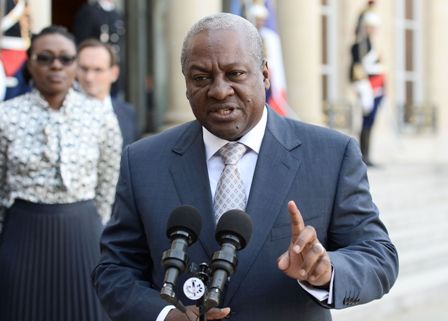President John Dramani Mahama has affirmed that he will give his full assent to the controversial Proper Human Sexual Rights and Ghanaian Family Values Bill, widely known as the anti-LGBTQ bill, if Parliament passes it in its current form.
Speaking at a meeting with the Christian Council of Ghana on November 18, 2025, Mahama emphasized that his values align with the Council’s long-standing conservative stance on sexuality.
“I believe that we have no questions about what we believe. I believe that we are completely aligned with the Christian Council … If the people’s representatives in Parliament endorse the bill, vote on it, and pass it, and it comes to me … I will sign it,” Mahama said.
Also read: Torkornoo loses first round at ECOWAS Court; Main case to proceed
He emphasised that even if Parliament introduces amendments, his position remains unchanged so long as lawmakers approve the bill.
“If there are any adjustments that need to be made, and it comes to me as President, I will sign it,” he added.
Bill reintroduced
Mahama’s remarks follow an earlier ruling by Speaker Alban Bagbin on October 28, 2025, declaring that the anti-LGBTQ bill expired with the dissolution of the 8th Parliament and must therefore be reintroduced.
In response, ten MPs, including Ningo-Prampram MP Sam George and Assin South MP Rev. John Ntim Fordjour, reintroduced the bill as a Private Member’s Bill.
The National Coalition for Proper Human Sexual Rights and Family Values, led by Executive Secretary Moses Foh-Amoaning, has been mounting pressure on both Parliament and the Presidency to act swiftly.
Foh-Amoaning criticised what he described as delays and silence from state actors. “The Coalition is deeply concerned that such silence and inaction risk undermining the will of the people,” he said.
He noted that the bill has long reflected Ghana’s moral conscience and cultural identity and should not remain stalled.
During the 2024 campaign, Mahama repeatedly stated that whether he would sign the anti-LGBTQ bill depends on what is in it. After assuming office, he argued that such a sensitive bill should ideally be introduced as a government-sponsored bill to allow for wider consultation and national ownership.
In a meeting with Catholic Bishops earlier this year, the President even suggested that Ghana may not need legislation to protect family values.
He proposed embedding moral and cultural education into the national curriculum, rather than enacting new criminal laws.
Background
The Human Sexual Rights and Family Values Bill — widely referred to as the anti-LGBTQ+ bill — is rooted in a complex mix of colonial-era laws, religious influence, cultural norms, and reactions to the rising visibility of LGBTQ+ people in Ghana.
Same-sex relations between men were first criminalized under British colonial rule through the unnatural carnal knowledge ordinance. After Ghana gained independence in 1957, this provision remained in the Criminal Code, forming the legal foundation upon which the current, more expansive bill has been built.
Ghana is a deeply conservative society where religious institutions, Christian, Muslim, and traditional, play a major role in shaping public opinion. These groups overwhelmingly support the bill, arguing that LGBTQ+ identities and activities are “alien to Ghanaian culture,” immoral, and incompatible with traditional family systems.
Modern public debate on LGBTQ+ issues began intensifying in 2006 when activists attempted to organize a gay and lesbian conference in Accra. The government banned the event following widespread opposition.
A major turning point came in 2021 with the opening of an LGBTQ+ community center in Accra. Backed by some foreign diplomats, it triggered strong backlash and encouraged bipartisan MPs to initiate new legislation aimed at tightening restrictions on LGBTQ+ activities and advocacy.
The bill was first introduced in March 2021 as a private member’s bill — a relatively new legislative procedure in Ghana.
Parliament unanimously passed the bill in February 2024. It was forwarded to then-President Nana Akufo-Addo, who declined to sign immediately due to pending cases at the Supreme Court. In December 2024, the Court dismissed the challenges as premature, ruling that it could only review the law after presidential assent.
While the anti-LGBTQ bill enjoys overwhelming support among Ghanaians, it faces severe criticism from international human rights bodies, Western governments, and donors.


